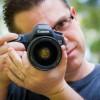Brief Summary
This course helps you take stunning night photos, whether you're using a phone or a fancy SLR. You'll learn tips to avoid pitfalls like blurry images and discover how to make the most of low-light conditions. Unleash your creative side when the sun goes down!
Key Points
-
Capture the magic of nighttime with any camera.
-
Avoid common mistakes like blurry photos.
-
Understand camera settings for low-light photography.
-
Explore creative opportunities after dark.
-
Learn to process night photos for better results.
Learning Outcomes
-
Gain confidence in taking night photos.
-
Know how to adjust camera settings for night conditions.
-
Learn about unique creative techniques for nighttime photography.
-
Understand how to use different types of cameras at night.
-
Master the basics of photo processing for night shots.
About This Course
Take beautiful photos that capture the magic of the night and avoid night photo traps. Use any camera from phone to SLR.
Stop taking blurry photos with night photography tips. Unlock the power of any camera at night. Exploit the creative possibilities that come when the sun goes down.
Photographing at night opens up a whole new world of possibilities. Typically, shooting at night means shooting in low light, which can be a real challenge. Endless blurry party photos on facebook, or faces nuked by flash are proof of that. But believe it or not, anyone can improve their night photos, and you don't necessarily need a fancy camera to do so. Just a few amazing night photography tips can do the trick for you. Not only that, but the creative possibilities you get after the sun goes down are huge! Not as many people take photos at night, so you have the opportunity to take unique, eye-catching photos that will wow your friends after taking this night photography tutorial.
What night photography tips will you learn?
● The main problems you face when taking photos at night.
● The camera settings you need to understand to take great night photos.
● How different types of cameras perform at night.
● Getting the most out of your camera.
● Getting creative with night photography.
● Processing photos taken at night.
To give you the tools and knowledge you need to take control over how your night photos look.
To give you the confidence to get good photos at night
To show you how to unlock the creative potential of night photography




Mary A. H.
Thank Neil, great class. Easy to implement sadly in such a short period of time all the Lightroom tools have dramatically changed. However, the concept of night photos remains.